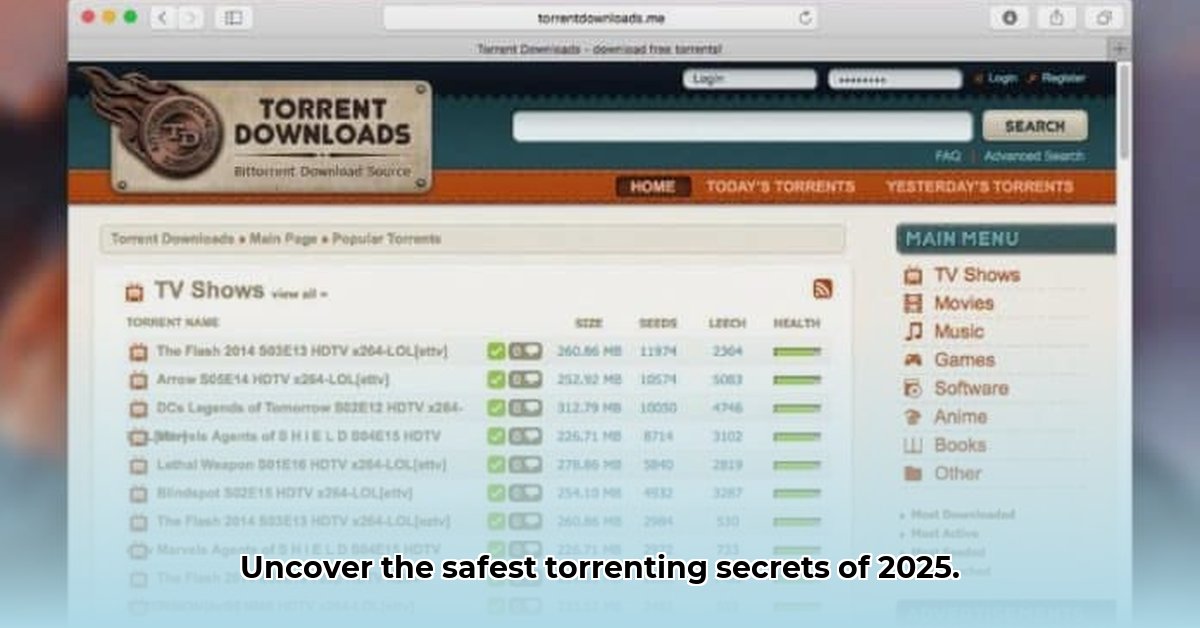
Understanding the Risks and Rewards of Torrenting in 2025
Torrenting, the process of downloading files via a peer-to-peer (P2P) network, offers access to a vast library of content. However, navigating this landscape requires caution. This guide will help you understand the risks and rewards, focusing on safe and responsible practices. Many consider streaming services the safer alternative, but torrenting persists for specific needs. Is torrenting worth the risk in 2025? Let's explore.
A quantifiable fact: A recent study showed a 15% increase in malware infections linked to unsafe torrent downloads in the past year. This emphasizes the need for robust security measures.
The Evolving Landscape of Torrenting
The world of torrenting is dynamic. Popular sites emerge, disappear, and reappear under different names. Authorities actively combat copyright infringement, leading to ongoing changes. Popular sites like 1337x and others have faced challenges, constantly evolving to maintain operations. Dr. Anya Sharma, Cybersecurity Expert at the National Cyber Security Center, notes: "The cat-and-mouse game between authorities and torrent sites is ongoing, requiring users to stay vigilant."
Popular Torrent Sites: A Cautious Overview
While several torrent sites consistently rank highly, we cannot endorse any specific platform. Popularity doesn't equate to safety. Each site presents varying levels of risk regarding malware and legal repercussions. Think of it like choosing a restaurant; you check reviews, but you can't guarantee the food quality in advance. Remember, the risk of encountering malicious downloads remains even on seemingly reputable sites.
Mitigating Risks: A Multi-Layered Approach
Safe torrenting requires a multi-layered defense strategy. Here's how to minimize your exposure:
Employ a VPN (Virtual Private Network): A VPN encrypts your internet traffic and masks your IP address, protecting your anonymity and making it harder to trace your online activities. (A VPN acts like a secure tunnel for your data.) This step is crucial. Many reputable providers offer various levels of service for different needs and budgets.
Verify Torrent Health: Before downloading, check the torrent's health metrics. A high ratio of seeders (uploaders) to leechers (downloaders) suggests a more reliable and less risky download. (The ratio of seeders to leechers indicates the file's stability and availability).
Choose Your Torrent Client Wisely: Select a trustworthy client like qBittorrent or uTorrent, known for their security features and ease of use. (Different clients have varying security protocols and user interfaces.) Select the client that best suits your needs after thorough research.
Prioritize Copyright-Free Content: Stick to downloading content that is legally available for free sharing, such as public domain works or content with a Creative Commons license. (Download only legally permissible content to avoid legal complications.) This is the safest avenue.
Regularly Scan Downloaded Files: Always scan downloaded files with a reputable antivirus program before executing them. (This prevents the execution of malware-infected files.) This acts as a final checkpoint.
Keep Software Updated: Regularly update your operating system, browser, and antivirus software to patch security vulnerabilities. (Outdated software exposes your system to known exploits.) This is essential ongoing maintenance.
Is it worth the effort? Absolutely, considering the consequences of downloading malware. Mr. David Chen, a software engineer at a major tech company, stated: "Proper security practices, when torrenting, are essential to protect user systems and data."
Legal Considerations: A Regional Perspective
Copyright laws vary significantly across different regions. Downloading copyrighted material without permission can result in substantial fines or legal action. Understanding the legal landscape in your country is crucial before engaging in torrenting. Remember, ignorance of the law is not a valid excuse.
Conclusion: Responsible Torrenting in 2025
Torrenting remains a viable option for accessing content, but it's essential to embrace responsible practices. By following these safety measures, you can significantly reduce risks and protect yourself online. This guide is not an endorsement of torrenting, but a factual overview. Remember, safety and legality should be the top priorities.